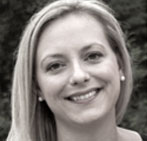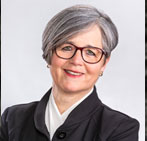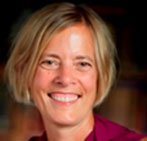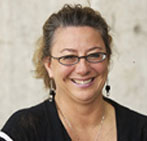Summary
Objective Structured Clinical Examinations (OSCEs) have been a popular means
of assessment in the medical profession for several decades. As a
performance-based tool, OSCEs have advantages over other methods of
assessment. In this webinar, key principles surrounding the development of
reliable, valid, and fair OSCEs will be reviewed with a focus on the practical
knowledge required to support the sound integration of OSCEs within
curriculum.
Three distinct examples of OSCE and virtual OSCE (V-OSCE) assessing three
different national dental hygiene competencies will be presented by dental
hygiene faculty members: one focusing on the implementation of intraoral
radiographs, another one assessing a comprehensive health history, and lastly,
one that assesses dental anatomy and morphology.
Presenters

Nicole Evers, MSc
Development of Valid and Reliable OSCE Stations
Nicole holds a MSc in Occupational Psychology from the University of
Nottingham (UK) and has over a decade of experience working with a broad
range of clients in the public and private sector to helps develop
quality assessment solutions. She is trained to assess, understand, and
diagnose organizations and individuals working within them. As a senior
psychometrician at Yardstick Assessment Strategies- Meazure Learning,
Nicole provides psychometric expertise on all aspects of testing
development activities for licensure and certification programs. Her
responsibilities include competency development, blueprinting, item
development, test assembly, item and test analysis, and standard
setting. Her goal with all clients is to engage and support them through
their assessment processes. She looks forward to working with clients to
develop assessments which are defensible, relevant, fair and tailored to
their needs. Past and current clients have included professional
associations, and regulatory bodies in the healthcare sector (including
nurses, midwives, nurse practitioners, dental assistants, imaging
technologists) and various other professions (e.g., event professionals,
insurance professionals)

Susan Schmitz, DHP(C), MEd
Susan is a lecturer in the University of British Columbia’s Dental
Hygiene Degree Program (DHDP). Obtaining a Diploma in DH at Algonquin
College (Ottawa), she has experience in both general and periodontal
practice. A passion for education early in her career took her on
academic pursuit culminating with a Master of Education (Curriculum and
Instruction) from Simon Fraser University, Vancouver, BC. Susan has
taught Radiology to all members of the Dental team. As the DHDP Clinic
Coordinator, she is actively involved with second, third- and
fourth-year DH students to meet outcomes leading to entry-to practice
competency at graduation.

Sally Lockwood, RDH, BComm, MEd
Sally completed her diploma in dental hygiene in 1987 and has been in
both clinical practice and teaching for most of the years since then.
After completing her MEd degree in 2004, Sally moved more fully into
teaching, and she is presently the coordinator of the preclinic and
first year clinic program in the Dental Hygiene Program at the
University of Alberta. Further to coordinating and teaching in the
junior clinic program, Sally teaches the students the support theory to
clinic as part of the Dental Hygiene theory and practice course. As
well, with her background from her undergraduate degree in business and
commerce, Sally is responsible for the small business and
entrepreneurship course given to the senior level dental hygiene
students.

Penny Hatzimanolakis, DHP(C), BDSc, MSc
Since 2002, Penny has been teaching at UBC in the graduate Periodontics,
undergraduate Dental, and Dental Hygiene Degree Programs and has
received awards in teaching in 2012, 2017 and 2018 and research awards
in 2017 and 2018. As a scientific investigator, her focus is on
therapeutic modalities for periodontal diseases, including implants. She
has been published in multiple peer-reviewed journals and is an
accomplished speaker nationally and internationally. Since 1994, she has
practised in various settings with periodontics/prosthodontics specialty
teams with a philosophy grounded in supporting comprehensive
client-centered care. Penny serves on various boards and committees
including the Pacific Dental Conference and BCDHA’s anti-stigma group.
She is also the owner of UpScale Consulting, a business management
company that help support colleagues in the development of clinical
skills and hygiene programs, to help dental hygienists in delivering a
"better" practice of oral and overall care for the public.
Moderator

Sylvie Martel, RDH
A seasoned speaker and change agent herself, Sylvie is an avid
continuous learner. Her practical experience includes periodontics,
orthodontics, restorative dentistry, administration, and education. She
has held full-time and part-time faculty positions in both Dental
Hygiene and Dentistry programs. Before joining CDHA as Director of
Dental Hygiene Practice, she was working in the corporate sector as a
lecturer, key opinion leader, trainer, and education specialist. She
also served as an assessor and board member for the Commission on Dental
Accreditation of Canada and a professional advisor and education manager
with the National Dental Hygiene Certification Board of Canada. An
active member of many organizations, her numerous contributions to the
advancement of her profession have been highly recognized over the
years.
Learning Outcomes
After the webinar, participants will be able to:
-
Understand key assessment principles impacting the development,
administration, and scoring of OSCEs
-
Identify clinical competencies, learning outcomes, content domains and
process skills that can be assessed via OSCEs or virtual OSCEs
-
Apply best practices in the development of stations, scenarios, and
scoring rubrics
-
Understand the importance of clear evaluation criteria including the
development of the evaluation instrument, instructor calibration,
student orientation and preparation, and student self-evaluation
-
Reflect on three presentations outlining three different clinical
competencies assessed using OSCE or a V-OSCE: one in radiography,
another in health history assessment, and the another in dental
anatomy/morphology